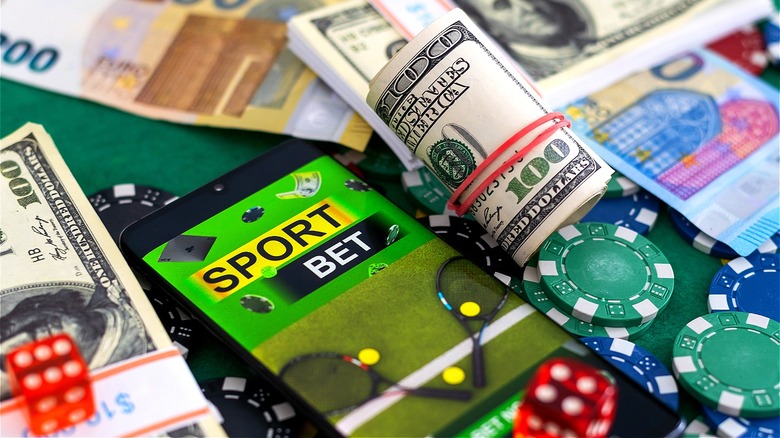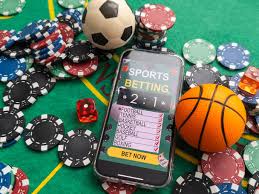
Best Ways to Use Poker
Poker is not just a game of chance; it is a fascinating blend of strategy, psychology, and mathematics. Many people play poker solely for entertainment, but there are numerous ways to leverage this game for a more fulfilling experience. In this article, Best ways to use poker Vivi will outline the best ways to use poker, whether you are looking to improve your skills, engage socially, or even make money.
1. Enhance Your Strategic Thinking
One of the primary benefits of playing poker is its capacity to enhance strategic thinking. Poker requires players to formulate strategies based on incomplete information. By learning to assess odds, reading opponents, and planning moves ahead, you can develop your analytical skills. This strategic mindset can be applied to various aspects of life, including professional environments, decision-making processes, and even personal relationships.
2. Improve Your Emotional Intelligence
Emotional intelligence, the ability to understand and manage your emotions and those of others, is crucial in poker. Successful players must remain calm under pressure, maintain focus, and control their reactions to both wins and losses. This ability to read opponents and gauge their emotional states can give you an edge at the table and improve your interpersonal relationships outside the game. Engaging regularly in poker helps build resilience and emotional regulation.
3. Build Social Connections
Poker is inherently a social game. Whether you’re playing at home with friends, in a casino, or online, poker creates opportunities to meet new people. Sharing a common interest in the game fosters camaraderie and helps break the ice in social situations. You can find local poker clubs, participate in tournaments, or even play online to widen your social circle. Over time, these connections can translate into lasting friendships or business relationships.
4. Make Money Playing Poker
For many, poker is more than just a hobby; it can also be a source of income. With dedication and skill development, players can turn a profit from their poker games. Here are some tips for making money with poker:

- Start Small: Begin by playing low-stakes games to gain experience without risking substantial sums of money.
- Study the Game: Learn poker strategies through books, online resources, and even videos. Understanding the intricacies of the game is crucial for success.
- Bankroll Management: Properly manage your bankroll by setting limits on how much you can afford to lose and sticking to that budget.
- Play Aggressively: Strong players often adopt an aggressive strategy, applying pressure on opponents to induce mistakes.
- Participate in Tournaments: In addition to cash games, participating in tournaments can provide larger payouts and the opportunity to test your skills against a broader field.
5. Engage in Mental Exercise
Playing poker is a remarkable mental exercise that can sharpen your cognitive abilities. The game involves mathematics, probability, and logic, providing ongoing intellectual stimulation. Regular engagement with poker can help keep your mind sharp, improve memory retention, and enhance problem-solving skills. Whether you are playing against others or challenging yourself with solitary poker exercises, the mental workout is invaluable.
6. Establish Discipline and Patience
Patience and discipline are essential traits for success at poker. Players must have the ability to wait for the right moments to act, which mirrors real-life scenarios where impulsiveness can lead to negative consequences. By practicing patience at the poker table, you can learn to take thoughtful, calculated actions in your everyday life. This discipline can also be beneficial in achieving personal goals and managing stress.
7. Enhance Decision-Making Skills
Poker is fundamentally about making decisions with incomplete information. Each hand presents a unique situation that requires players to weigh potential outcomes, assess risks, and choose a course of action. This process of making informed decisions can enhance your overall decision-making skills. You will learn to consider various factors before acting, a practice that can be applied to both personal and professional settings.
8. Adaptability and Flexibility
The unpredictable nature of poker teaches players to be adaptable. Each game can vary widely based on the cards dealt and the behavior of opponents. As a player, you must learn to adjust your strategies in real-time. This adaptability can be transferred to other areas of life, such as adjusting to changing circumstances in your job or family life. Learning to embrace change can lead to greater resilience.
9. Enjoyment and Relaxation
Finally, one of the best ways to use poker is simply to enjoy it. Poker is a game that can provide hours of entertainment, whether you’re playing with friends or competing in a high-stakes tournament. The thrill of the game can be a fantastic way to unwind and escape from daily stressors. Engaging in something you love, like poker, is vital for maintaining a healthy work-life balance.
Conclusion
In conclusion, poker is far more than just a card game; it offers diverse opportunities for personal development, social engagement, and even financial gain. By navigating the intricacies of poker, you can enhance your strategic thinking, improve emotional intelligence, develop discipline, and connect with others. Whether you play professionally or for fun, implementing these best ways to use poker will enrich your life in numerous aspects.
发表回复